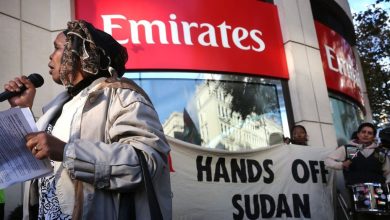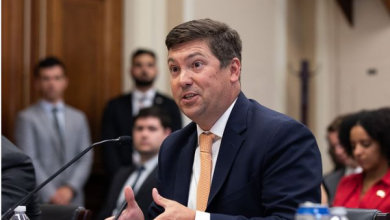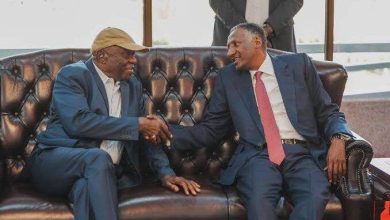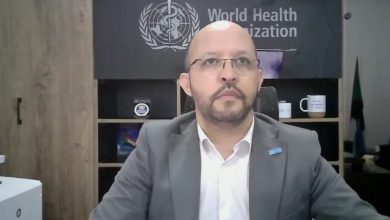Reports
International Criminal Court: December for Closing Arguments in “Kushayb” Case
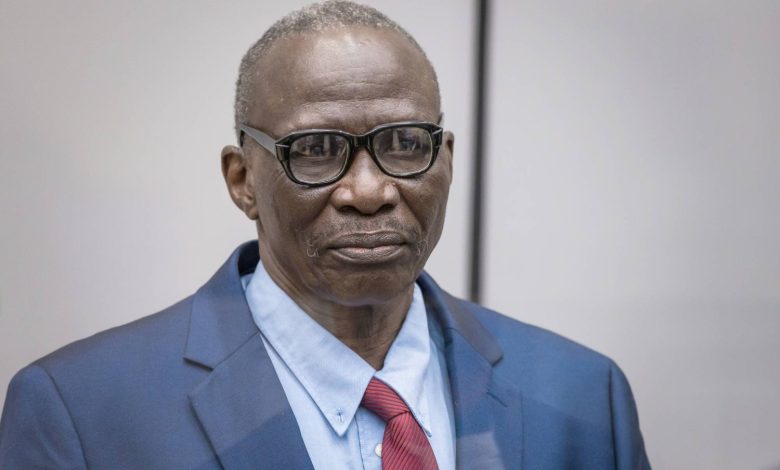
Sudan Events – Agencies
As the International Criminal Court (ICC) prepares to deliver its closing arguments in the case of Sudanese Ali Abdel-Rahman, known as “Ali Kushayb,” who is accused of war crimes and crimes against humanity in the Darfur region, the defense has described Kushayb as a “scapegoat” presented by the Sudanese government to cover up the key perpetrators: former president Omar al-Bashir, then-Defense Minister Abdel-Rahim Mohamed Hussein, and then-Interior Minister Ahmed Harun.
The ICC announced, in a workshop held for Sudanese journalists in Kampala, Kenya, on Friday, that the court would present closing arguments in the case brought by the prosecutor against Ali Mohamed Ali Abdel-Rahman (Kushayb) from December 11 to 13, 2024, at the court’s headquarters in The Hague, Netherlands.
Abdel-Rahman faces 31 charges related to war crimes and crimes against humanity allegedly committed in Darfur between August 2003 and April 2004, in areas including Muggier, Bindesi, Delleij, and Kadum in Central Darfur.
Calls for the Extradition of Bashir and Harun
Dahiru San Ana, a spokesperson for the Office of the Prosecutor, stated via video conference from The Hague that his office is investigating crimes committed in Darfur as a result of the ongoing war. He mentioned that a team has been collecting information in Darfur related to new war crimes and crimes against humanity reported to be occurring in the troubled region. Once the investigations are complete, requests will be made to the court’s judges for charges to be brought.
He added that the main accused, former President Omar al-Bashir, his former Defense Minister Abdel-Rahim Mohamed Hussein, and former Interior Minister Ahmed Mohamed Harun, are still in Sudan. He said: “According to a UN Security Council resolution, they must be handed over to the court, and this obligation remains.” He also noted that the October 25, 2021 coup, led by the military, complicated matters regarding their extradition.
San Ana said the Sudanese government knows where the accused are located, and added: “We asked them last year, but they did not provide us with any information and said they are investigating the whereabouts of Ahmed Harun.” He continued, “The investigation into Kushayb’s case showed Harun’s involvement in all the crimes committed by Kushayb, and we requested his extradition to face trial alongside Kushayb, but that has not happened.”
The issue of Ahmed Harun’s extradition has resurfaced following internal conflicts within al-Bashir’s “National Congress” party and Harun’s election as party leader, despite the charges against him by the ICC and local accusations.
After al-Bashir’s ousting, the three men are facing charges related to the 1989 coup, which carry the death penalty. Following the war’s outbreak on April 15, Harun and other suspects were released from prison, and their whereabouts remain unknown, though authorities state that al-Bashir and Hussein are still in custody, without disclosing their locations.
Accusations Against the Sudanese Government
The ICC spokesperson, Fadi Abdullah, explained that the court cannot extend its jurisdiction to crimes allegedly committed by the “Rapid Support Forces” (RSF) in new areas of Sudan, as Sudan is not a member of the Rome Statute that established the ICC. Therefore, the court’s jurisdiction is limited to the UN Security Council Resolution 1593, which referred the Darfur situation to the court in 2005.
Kushayb’s lawyer, Cyril Laoshi, in a statement to the press, accused the Sudanese government of presenting Kushayb as a “scapegoat” to cover up the key perpetrators. He said: “A representative of Sudan came and said: ‘Take him and prosecute him, this is the person who should be tried,’ despite the presence of the main accused, Omar al-Bashir and his two defense and interior ministers.”
Laoshi attributed the delay in the trial proceedings to the absence of the other accused. He added: “The process could have proceeded in a way that delivers justice if the other accused were present.” Laoshi admitted that the crimes under trial had occurred and called for reparations for the victims, saying: “The victims have the right to compensation, regardless of whether Kushayb is convicted or acquitted, and their right will not be affected by whether he is a criminal or not.”
According to spokespeople for the court in The Hague, the prosecution, the legal representatives of the victims, and the defense will present their closing arguments at the scheduled time before the First Trial Chamber, which consists of Judge Joanna Korner (presiding judge), Judge Ryan Alapini Ganso, and Judge Altia Violet Alexis.
Kushayb’s trial began before the First Trial Chamber on April 5, 2022, following his surrender to the court in June 2020. During the proceedings, the court heard testimony from 56 witnesses, and the prosecution’s case closed on June 5, 2023. The court is now awaiting the closing arguments of both the prosecution and the defense before making a decision regarding the man detained at the court in The Hague.
